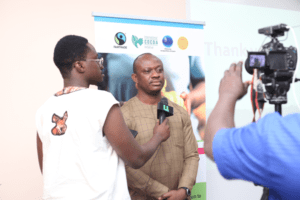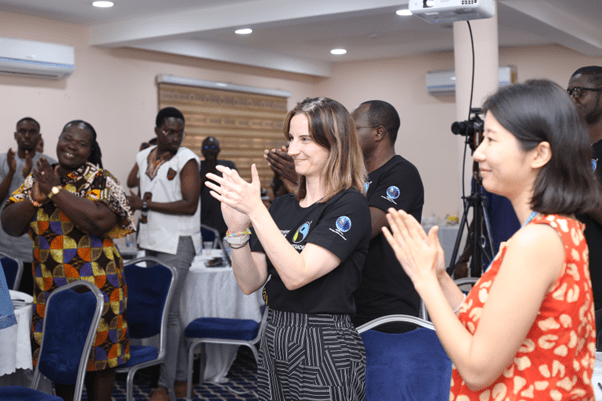A total of 12,700 children from 36 cocoa growing communities are set to benefit from a project by Fairtrade, International Cocoa Initiative and Tony’s Open Chain.
Dubbed Children in Rural Communities are Learning and Empowered (CIRCLE), the project is to ensure an equitable and integrated child protection system in beneficiary communities. It will involve the participation of two producer organiations, Asunafo North Cocoa Farmers’ Cooperative Union in Goaso and Asetenapa Cocoa Farmers’ Cooperative in Suhum.
Its implementation will focus on four key areas: establish a harmonised child protection system to monitor and remediate instances of hazardous child labour; support cooperatives to implement child labour monitoring systems; support the development of a safe school environment to promote enrolment, retention and completion; and build the resilience of children to protect, report and advocate.
Ghana is the second-largest producer of cocoa beans in the world, with cocoa being an export cornerstone of the economy that provides income for about six million people. Moreover, a significant number of children work in the cocoa sector – performing hazardous tasks and experiencing abuse. Awareness of children’s rights, development and enforcement of the rights and structures for protection are occasionally limited, which eventually contributes to the challenges.
The CIRCLE project will influence duty-bearers in the cocoa-growing communities to take up their roles of providing services and safety for children in their schools and communities. This is to create an environment where children can play, learn and grow – while feeling safe, empowered and secure – at school and in the community.
The project’s final rights holders are children from 36 cocoa-growing communities in two producer organisations – namely Asunafo North Cocoa Farmers’ Cooperative Union in Goaso and Asetenapa Cocoa Farmers’ Cooperative in Suhum, targetting an estimated total of 12,700 children.

In an address, Head of Region-West Africa Network (WAN) of Fairtrade Africa, Edward Akapire, reiterated Fairtrade Africa’s commitment to partnering the government of Ghana and other like-minded organisations to work closely together on ensuring improved access to quality education for children, and income-generating activities that address household poverty in cocoa-growing communities of Ghana.
The CIRCLE project is being implemented by Fairtrade Africa and International Cocoa Initiative in collaboration with Fairtrade Finland and Fairtrade Max Havelaar Netherlands and the producer organisations; funded by the Ministry for Foreign Affairs of Finland and Tony’s Open Chain. The project is part of Fairtrade Finland’s DONUTS programme.
DONUTS
Fairtrade Africa is currently implementing the Dignified Opportunities Nurtured Through Trade and Sustainability (DONUTS) programme in Africa. It is a four-year long (2022-25), human rights-based development programme that comprises 12 projects in Africa funded by the Ministry for Foreign Affairs of Finland, Fairtrade Organisations and several private sector companies; and a continental Human Rights and Environmental Due Diligence (#HREDD) dialogue project in specific value chains — flowers, cocoa and wine.
Among the 12 projects, three are being implemented in Ghana — the Sankofa 2.0, KKCLMRS and CIRCLE projects. The DONUTS CIRCLE Project contributes to SDGs 4, 8.7 and 16.2 through its interventions.
About Fairtrade Africa
Fairtrade Africa is a member of Fairtrade International and serves as the umbrella network organisation representing and supporting Fairtrade-certified producer organisations in Africa and the Middle East. Established in 2005 and with the secretariat based in Nairobi, Fairtrade Africa has four regional networks: Eastern & Central Africa; Southern Africa; West Africa; and the Middle East & North Africa. Fairtrade Africa currently represents more than 1.3 million farmers and workers in 660 producer organisations spread across 28 countries in Africa and the Middle East, providing services that contribute to the improvement of their livelihoods.










